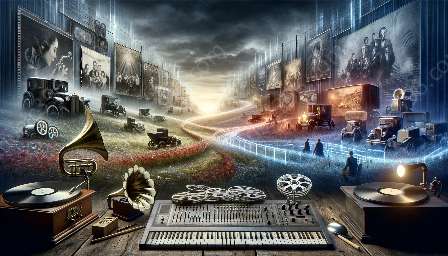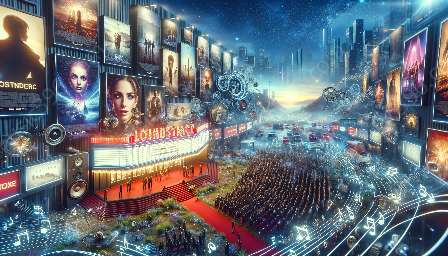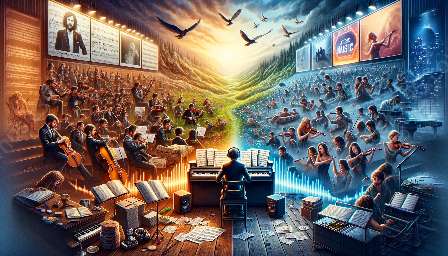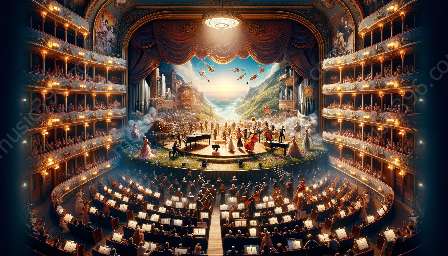Scoring for film and other musical compositions involves distinct approaches and considerations. Understanding the differences is crucial in creating impactful soundtracks that enhance cinematic storytelling. Here, we delve into the unique elements of film scoring, musical themes in soundtracks, and the fascinating world of creating music for film.
The Art of Film Scoring
Film scoring encompasses the creation of music specifically tailored for use in film and television. It serves as a powerful tool for enhancing the emotional impact of visual storytelling, complementing the narrative, and immersing the audience in the cinematic experience.
Key Differences:
- Musical Themes: In film scoring, composers often develop recurring musical themes or motifs associated with specific characters, places, or ideas within the film. This technique helps to establish emotional connections and reinforce the narrative elements, contributing to the overall cohesiveness of the soundtrack.
- Tailored Music: Unlike other musical compositions, film scoring requires music that is intricately synchronized with on-screen events, dialogue, and visual cues. Composers must carefully consider the pacing, timing, and mood of the scenes to ensure that the music complements the storytelling without overpowering it.
- Collaborative Process: Film scoring involves close collaboration with directors, producers, and editors. Composers work within the larger framework of the film's vision and style, adapting their musical compositions to align with the director's creative objectives and the overall aesthetics of the movie.
Musical Themes in Soundtracks
Soundtracks play a pivotal role in shaping the overall atmosphere and emotional resonance of a film. Musical themes are carefully crafted to evoke specific emotions, underscore character development, and heighten dramatic tension. Unlike standalone musical compositions, soundtracks are designed to seamlessly integrate with the visual narrative, amplifying the impact of the storytelling.
Characteristics of Soundtrack Themes:
- Emotional Resonance: Soundtrack themes are tailored to elicit specific emotional responses from the audience, enhancing the on-screen drama and creating a deeper connection to the characters and plot.
- Dynamic Adaptation: Composers of soundtracks must be adaptable and responsive to the evolving narrative of the film. They often create variations of themes to reflect the changing dynamics and character arcs, providing a musical backdrop that evolves alongside the story.
- Integration with Dialogue and Action: Unlike traditional musical compositions, soundtrack themes are designed to seamlessly blend with dialogue and action sequences, enhancing the overall impact of key moments and creating a cohesive audiovisual experience.
Exploring the Fascinating World of Film Music
While scoring for film presents unique challenges and considerations, it provides composers with a captivating canvas for creative expression. The synthesis of music and imagery in film allows for the creation of memorable soundtracks that leave a lasting impression on audiences. Understanding the distinct nature of film scoring and the intricate role of musical themes in soundtracks is essential for aspiring composers and aficionados of cinematic music.





















